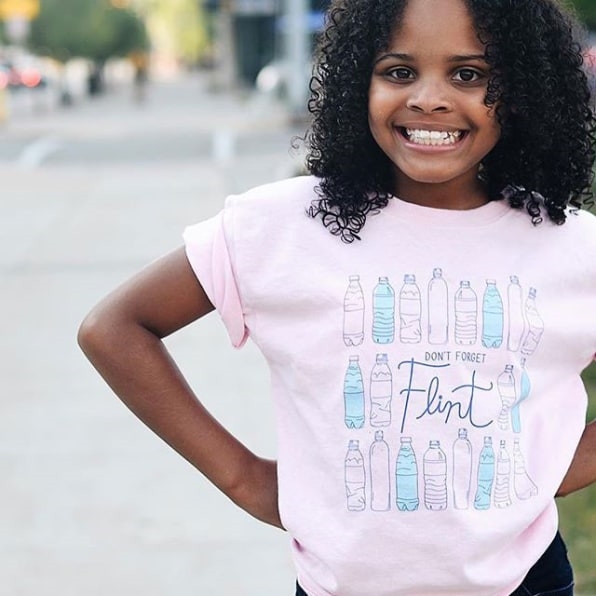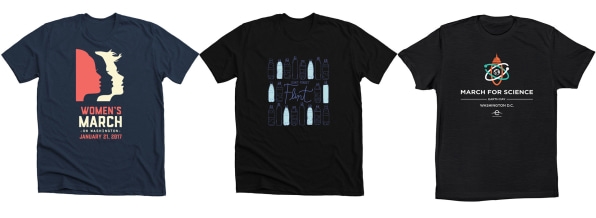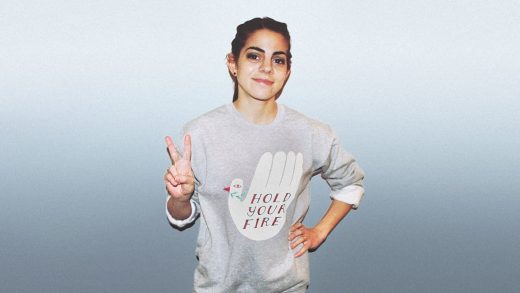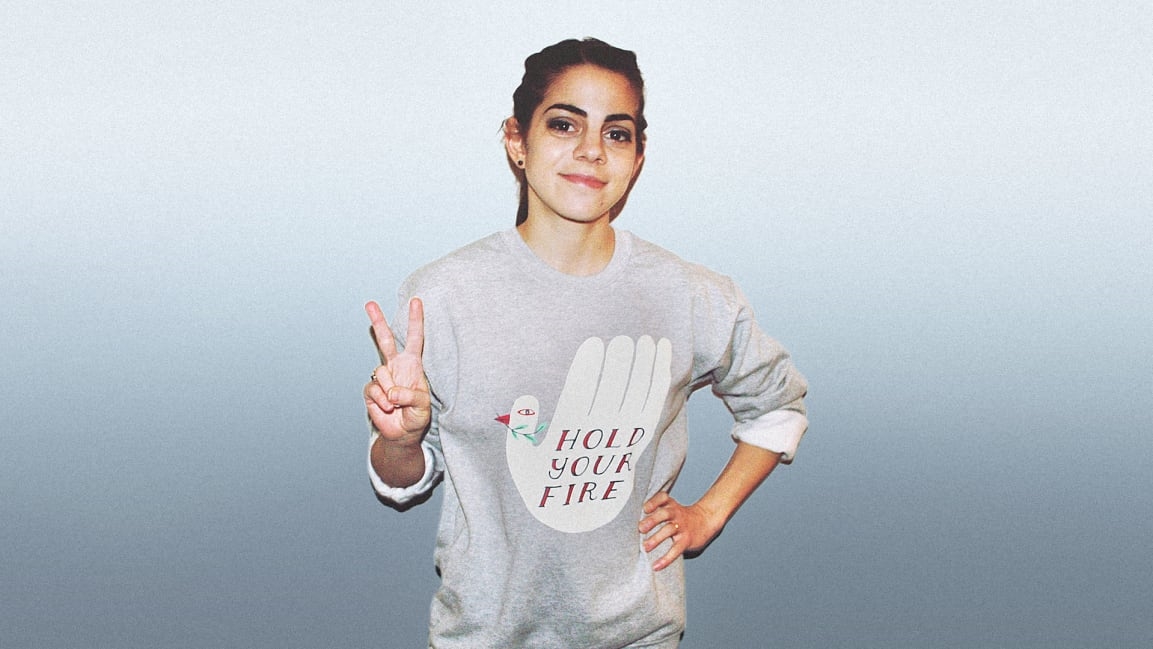These custom T-shirts are raking in millions for important causes
The inaugural National Women’s March in Washington, D.C., took place on January 21, 2017, when hundreds of thousands of people gathered to send a message to U.S. President Donald Trump about the importance of women’s rights as human rights. For those who want to show solidarity, there is even a souvenir T-shirt sporting the nonprofit Women’s March logo to keep the momentum going: More than 91,000 have since been sold on Bonfire, a print-on-demand custom apparel company that works a lot like GoFundMe, giving the majority of sale back to the effort it honors.
Since January 2017, Women’s March has netted more than $1.4 million to put toward more actions. But if you’d like your money to go elsewhere, Bonfire offers a range of options, like a shirt with the slogan, “Don’t Forget Flint” framed in plastic bottles to raise money for Flint Kids, a fund set up by the Community Foundation of Greater Flint, to one with the adorable cartoon panda symbol of Panda Paws Rescue, an animal rescue group.

On Bonfire, individuals and nonprofits alike can design T-shirts for causes they care about, and post an accompanying story about the significance of the movement and design. Campaign fundraisers set the price of their shirt (the average is about $22). When people go online and buy them, Bonfire charges $10 per shirt to handle the printing and shipping logistics, after which all proceeds go to the campaign host, who is tasked with ensuring that money reaches the right cause. Bonfire’s cut also decreases as sales reach certain milestones.
The company is for-profit and has been around since 2012. But demand for its services spiked in 2018, as seemingly more people sought ways to both fundraise and publicly support values that they stand behind. Last year, Bonfire hosted more than 100,000 campaigns, and it’s doubled the rate at which new campaigns are launching in recent years. All told, the company raised $6.3 million for campaigners in 2018. (While most were related to social-good efforts, that number includes some bands and anyone else who might have a need for custom memorabilia.)
“The model at its core is that sellers . . . launch a campaign and sell [shirts] to their community,” says founder and CEO Brian Marks. “And then at the end, we’ll print and ship directly to their supporters.” To do that, Bonfire has borrowed a few other recognizable crowdfunding features. Campaign organizers set a public target for the number of shirts sold, and there’s a homepage counter that tracks total purchases in real time. Supporters can also share campaigns on Facebook and Twitter.
Each campaign also has a time limit that typically ranges from seven to 21 days, after which the shirts start getting printed. But unlike on Kickstarter, it’s not a big deal if organizers fall short of their goal when the countdown expires. The limit to start a print run is generally just five orders.

Marks came up with the idea in 2011, after starting his own satirical campaign called “Save Shaka.” As alumni of Virginia Commonwealth University (VCU), he wanted to sell T-shirts to raise more contract money for VCU’s talented basketball coach Shaka Smart, who was in danger of being poached by richer schools. “That was the genesis of it, and it really took off,” Marks says, who next had to speculate how many shirts and sizes he’d eventually sell. “The problem was that I got stuck with a massive box of shirts, and that’s sort of what we’ve been fighting against ever since, which is, why buy a bunch of apparel if you’re not sure it’s going to sell?”
Bonfire solves that problem by letting anyone start a campaign for free, and then charging only per shirt ordered. While it’s up to the organizers to deliver what they raise to related cause groups, many who start these campaigns are in-house at those places or have a formal relationship with them already. The campaign organizer is clearly visible on each campaign, and the company says it works proactively to identify misrepresentation and fraud, and would refund customers in the “rare” instance that it could occur. GoFundMe, which acts similarly, encountered its own expensive scam last year.
At the same time, Bonfire relies on its organizers already having a network that trust them. It doesn’t have a central hub to help people navigate the entire ecosystem and what’s trending, although there is a staff picks section. As the popularity of its shirts has increased, Bonfire recently added a “supply” feature that lets creators order their own batches ahead of officially launching a campaign. That way, some folks can be already modeling it on Instagram before your march even starts.
(22)



